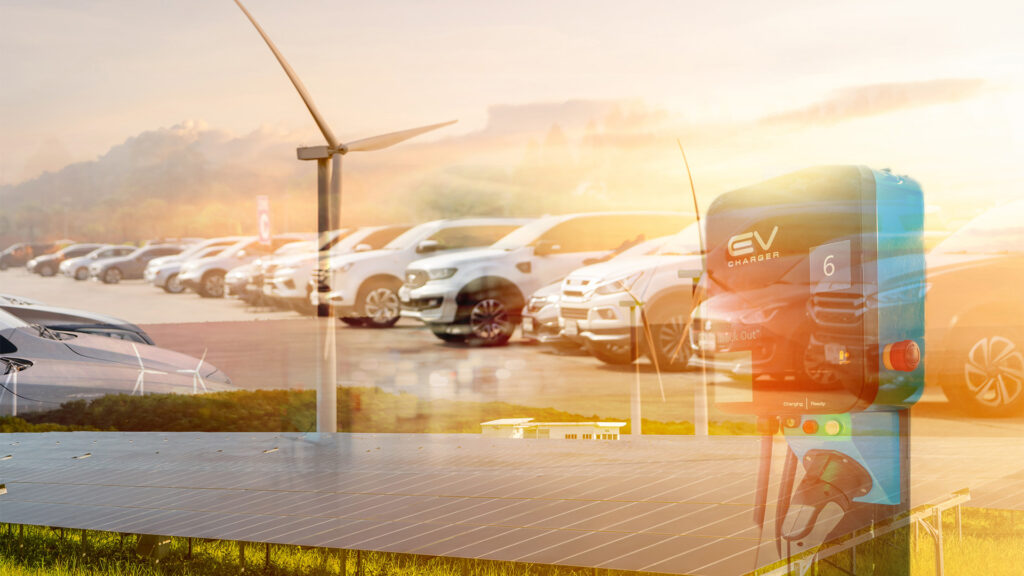This week will see some important data and decisions emerge that will tell us a lot about the health of the global EV market and the strength of the auto transition.
The results of talks between China and the EU on proposed tariffs on Chinese-sourced electric vehicles will be the important announcement this week for the future direction of electrified vehicle sales globally.
Additionally, there will be production and sales data for the quarter (and first half of this year) from Tesla and Chinese carmakers and their industry associations.
Importantly, China’s figures (including those of Tesla’s Shanghai car plant) will give us a good idea if there is a chance that total sales of new electric vehicles (battery and plug-in hybrids) will reach a predicted record of 10 million by December 31.
The July 4 deadline on EV tariff negotiations between China and the EU will impact the demand and pricing of renewable materials and EV sectors, including Australia.
Tesla’s June quarter production and deliveries data are due Tuesday or Wednesday. This will include the second quarter of production and sales of the sluggish Cybertruck, possibly only 10,000 or so, though Tesla is unlikely to reveal such a weak figure.
As of March 31, Tesla had produced 46,000 more cars around the world than it had delivered, and the June quarter saw the company sack between 10% and 14% of its employees worldwide (though it is now trying to hire back former staff in the US and China).
Tesla also cut working hours at its huge Shanghai plant in China to try to reduce the stockpile of unsold cars and continued to offer price cuts there (and in the US) and other inducements to prospective buyers. April was a weak month for the carmaker, but May was a lot better in China.
BYD, the world’s biggest maker of electrified vehicles, will release its sales data early in the week for June, the quarter, and the six months. It has ambitions to top last year’s 3 million sales by year’s end.
In January-May, BYD’s retail sales of NEVs in China increased by 20% year-on-year to 1.108 million units.
In the first five months of this year, China’s NEV production (BEVs and PHEVs) totaled 3.64 million units, up 29.1%. Sales growth accelerated in the second half of last year as price cuts emerged, government subsidies expanded, and consumers became more confident about spending money after the severe lockdowns during the pandemic.
Nearly 600,000 NEVs were sold in June of last year, and the target for this year was close to, if not more than, 900,000.
The 10 million sales forecast came last week from Wan Gang, president of the China Association for Science and Technology, in an address to the 15th World Economic Forum Annual Meeting in China.
For all of 2023, China’s NEV production reached 8.91 million units, up 34% from 2022.
BEVs produced totaled 6.11 million units in 2023, up 20% year-on-year, contributing 68.6% of total NEV production.
Production of PHEVs was 2.8 million units in 2023, up 80% year-on-year, or 31.4% of all NEV production.
In the first five months of this year, China’s NEV production amounted to 3.64 million units, up 29.1% year-on-year, with growth in PHEVs continuing to outpace that of BEVs, as hybrids without charging anxiety are more accepted by consumers.
Production of PHEVs in the first five months was 1.48 million units, up 86% year-on-year, while BEVs were 6.8% higher at 2.16 million units.
China’s 2022 NEV production was 6.64 million units, up 102.2%, according to data from the China Passenger Car Association (CPCA).
The most interesting news from China, apart from the continual rollout of new NEVs with updated technology and styling and pricing, was a report from Bloomberg that Toyota, the world’s biggest carmaker, is looking to set up a car plant in Shanghai on the same terms as Tesla received back in 2019.
The report said Toyota is negotiating with Shanghai authorities the possibility of building a wholly owned factory with similar financial and regulatory assistance to what Tesla received.
That includes tax breaks, policy support, land grants, and the ability to directly own and control factories in China without the need for a local joint-venture partner, according to people familiar with the matter.
Tesla’s Shanghai factory, which began construction on January 7, 2019, and became operational by the end of 2019, was the first wholly foreign-owned automotive manufacturing project in China. Every other foreign carmaker is in a JV with a local producer.
Toyota has two JVs in China (and falling sales) with locals, GAC Group and FAW Group.
According to Bloomberg, Toyota will use the plant to produce electric vehicles (EVs) for its premium Lexus brand. It plans to produce more Lexus hybrids in the US.
Chinese media reported in early May that Toyota’s joint ventures in China have plans to introduce plug-in hybrid electric vehicle (PHEV) models in the next two to three years. Instead of Toyota’s original regenerative hybrid technology, it is looking to use BYD’s latest DM-i hybrid system, which claims to offer more than a 1,500-kilometre range before the smaller battery needs charging.

